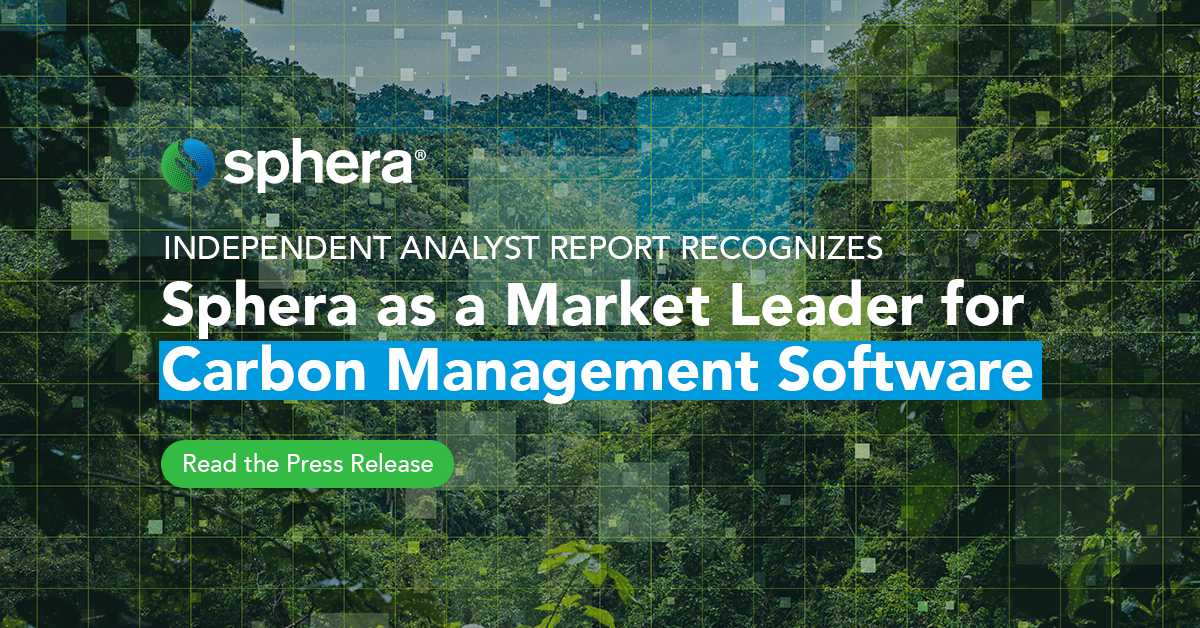ESG is a business strategy that’s beginning to take hold. Companies that integrate sustainable practices into their operations experience better operational performance and increased revenue. Elizabeth Lewis, managing director and deputy head of ESG at Blackstone—the world’s largest alternative investment firm and Sphera’s investor—elaborated on this finding during Sphera’s virtual ESG Summit in June 2022. She noted that integrating material ESG issues into the investment process reduces risk and creates value for investors and companies.
However, despite the financial, environmental and operational benefits of ESG, many businesses lack the data, software and expertise needed to plan and execute ESG strategies. And, with new climate-related disclosure regulations from the U.S. Securities and Exchange Commission (SEC) and the EU’s new sustainability reporting standards under the Corporate Sustainability Reporting Directive (CSRD) on the horizon, a strong ESG strategy is no longer optional—it’s quickly becoming mandatory.
The private equity (PE) industry has emerged as a leader in helping companies adopt ESG strategies. PE companies are uniquely positioned to promote ESG adoption by providing tools and resources to create and manage ESG strategies within their portfolio companies. An example of this is Blackstone, which introduced its Carbon Emissions Reduction Program in 2020 to reduce carbon emissions by 15% across new investments where it controls energy usage. In 2022, Blackstone integrated Sphera’s carbon accounting solutions within its platform of resources available to portfolio companies.
Sphera’s software enables Blackstone’s participating portfolio companies to strategically manage greenhouse gas (GHG) emissions and measure progress against decarbonization goals. The Blackstone portfolio companies that have selected Sphera’s solutions to reduce their GHG emissions span multiple industries, including financial services, technology and industrials. We hope the success of our integration with Blackstone’s Carbon Emissions Reduction Program will encourage more PE companies to implement similar strategies across their portfolio companies.
For companies looking to attract investors, ESG can serve as a differentiator in PE companies’ decisions to invest. In a 2021 PwC survey of 209 PE firms, 72% of respondents said they always screen target companies for ESG risks and opportunities at the pre-acquisition stage, and 56% said they have refused to enter general partner agreements or have turned down investments on ESG grounds.
Investors are identifying ESG as a necessary business strategy and are demanding more transparent ESG reporting from the companies they’re investing in. But investors still struggle to get the quality data needed to assess a company’s ESG performance. Without adequate and accurate data to back up ESG and sustainability commitments, companies risk being accused of greenwashing, which is when companies portray their products or services as being more sustainable than they are. In a recent episode of the SpheraNOW ESG podcast, Mike Zamis, Sphera’s chief product officer, described the challenges companies face in avoiding greenwashing, with disparate data sources and a lack of standardized reporting metrics presenting the greatest pain points.
Transparent, auditable data is essential to effectively communicate ESG performance to stakeholders and regulators. Carbon accounting allows companies to collect and report the direct and indirect GHG emissions data needed to meet these demands. Even with the right data, it can be difficult to determine how to reduce carbon emissions and ensure greater sustainability within the organization.
For sustainability leaders tasked with these challenges, the right insights will help them create long-term strategies that ensure their organizations are prepared for the future. These topics will be discussed at the Visionary 200 Sustainability Summit, taking place September 28-29, 2022. Sphera is proud to participate in the ESG conversation at this global event. Our executives and industry experts will be holding an ESG workshop during the event, and I invite attendees to join us for the discussion.
At Sphera, we’re committed to helping our customers assess their emissions baseline, decarbonize operations and improve ESG performance through carbon accounting strategies. In fact, Sphera was recently recognized as a leader in the carbon management software market by independent analyst firm Verdantix in its newest Green Quadrant report. Sphera received the highest score among vendors for our carbon emissions calculation engine, data modelling for Scope 3 upstream and downstream and carbon disclosure management. Sphera also received the highest score among vendors for carbon financial management. We’re honored to be recognized by Verdantix as a leader in carbon management software, and we’re proud of our role in helping companies improve their ESG performance.
As we transition to the new net-zero economy, optimizing ESG performance will be crucial for companies looking to secure investment dollars, mitigate their impact on the environment and adapt to climate change. It’s clear: Now is the time for companies to fully embrace ESG and do the right thing for the planet and for their bottom lines. If we invest in net zero today, we can create a safer, more sustainable and productive world for us all.
–Paul






